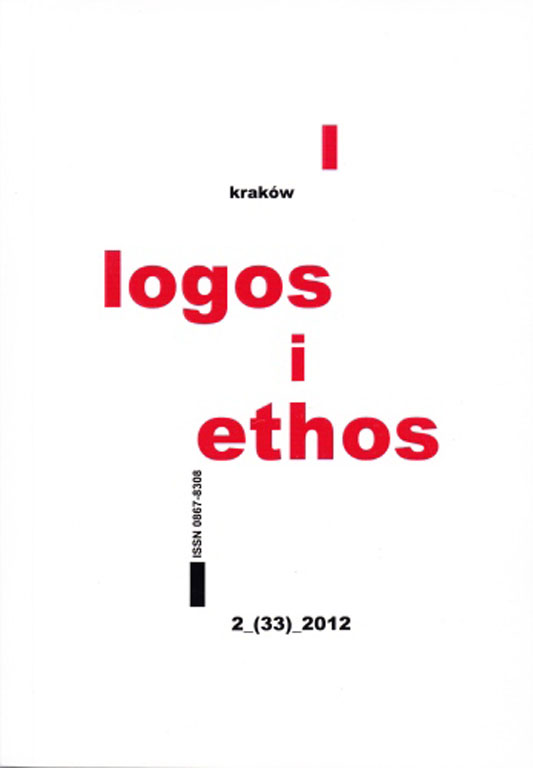René Descartes’a koncepcja pewności moralnej a argumenty sceptyków
DOI:
https://doi.org/10.15633/lie.182Abstrakt
The ambiguity of the expressions used in Descartes’ writings, and particularly those, which concern sceptical arguments, has been the reason for accusing him of leaning towards scepticism and atheism. In reality Descartes’ relation to scepticism was unequivocal. For the purpose of metaphysical certitude he used sceptical arguments only to derive knowledge from what otherwise could only have been considered probabilities. These sceptical arguments however, concerning moral certitude, were only used to provide examples of situations, in which a judgment about something was considered real and was in fact false, but nevertheless was possible (and even easy) to overcome.
When one takes into account sceptical arguments concerning sensual knowledge, then according to Descartes, they had only a small impact on our everyday life. In everyday practice we spontaneously use a method of practical reasoning which avoids the risk of error, and which guarantees the highest probability of avoiding illusion and connected with it – a mistake in knowledge recognition.
When it comes to the hypothesis of life as a dream, we should distinguish its presence in methodological doubt and its functionality within the framework of moral certitude. In the search of a foundation for metaphysical certitude it served Descartes’ to undermine the certitude of the existence of an external World; but in moral certitude it was of no significant importance. Above all, in reality – in opposition to a dream – we have the awareness of our domination and control over our bodies; this perception of reality is very clear to us. In addition we have what is called by us the awareness of the continuity of events, which allows us to distinguish between what happens in reality and what is occurring within us when we dream. One could say, that we daily spontaneously overcome scepticism, both at the level of reduced reliability on the credibility of our senses and at the level of the hypothesis of life as a dream.
Pobrania
Opublikowane
Numer
Dział
Licencja
Prawa autorskie (c) 2012 Marek Sołtysiak

Utwór dostępny jest na licencji Creative Commons Uznanie autorstwa 4.0 Międzynarodowe.
W kwestii praw autorskich obowiązują następujące zasady:
1. Twórca oświadcza, że służą mu prawa autorskie do utworu i że nie są ograniczone w zakresie objętym niniejszym oświadczeniem oraz że utwór jest dziełem oryginalnym i nie narusza praw autorskich innych osób.
2. Twórca zezwala Uniwersytetowi Papieskiemu Jana Pawła II w Krakowie na nieodpłatne, niewyłączne i nieograniczone w czasie korzystanie z utworu, to jest:
- utrwalanie i zwielokrotnianie: wytwarzanie egzemplarzy utworu techniką drukarską, reprograficzną, zapisu magnetycznego oraz techniką cyfrową;
- obrotu oryginałem albo egzemplarzami, na których utwór utrwalono (wprowadzanie do obrotu, użyczenie lub najem oryginału albo egzemplarzy, publiczne wystawienie, wyświetlenie, a także publiczne udostępnianie utworu w taki sposób, aby każdy mógł mieć do niego dostęp w miejscu i w czasie przez siebie wybranym);
- włączenie utworu w skład utworu zbiorowego;
- udzielanie przez Uniwersytet Papieski Jana Pawła II w Krakowie sublicencji Creative Commons Uznanie autorstwa 4.0 Międzynarodowe (CC BY 4.0)
3. Uniwersytet Papieski Jana Pawła II w Krakowie udostępnia utwór na Platformie Czasopism należącej do uczelni, na licencji Creative Commons Uznanie autorstwa 4.0 Międzynarodowe (CC BY 4.0). Tym samym uprawnia wszystkich zainteresowanych do korzystania z utworu pod następującymi warunkami:
- zostanie podany autor i tytuł utworu,
- zostanie podane miejsce publikacji (tytuł czasopisma i adres internetowy do oryginalnie opublikowanego utworu).

